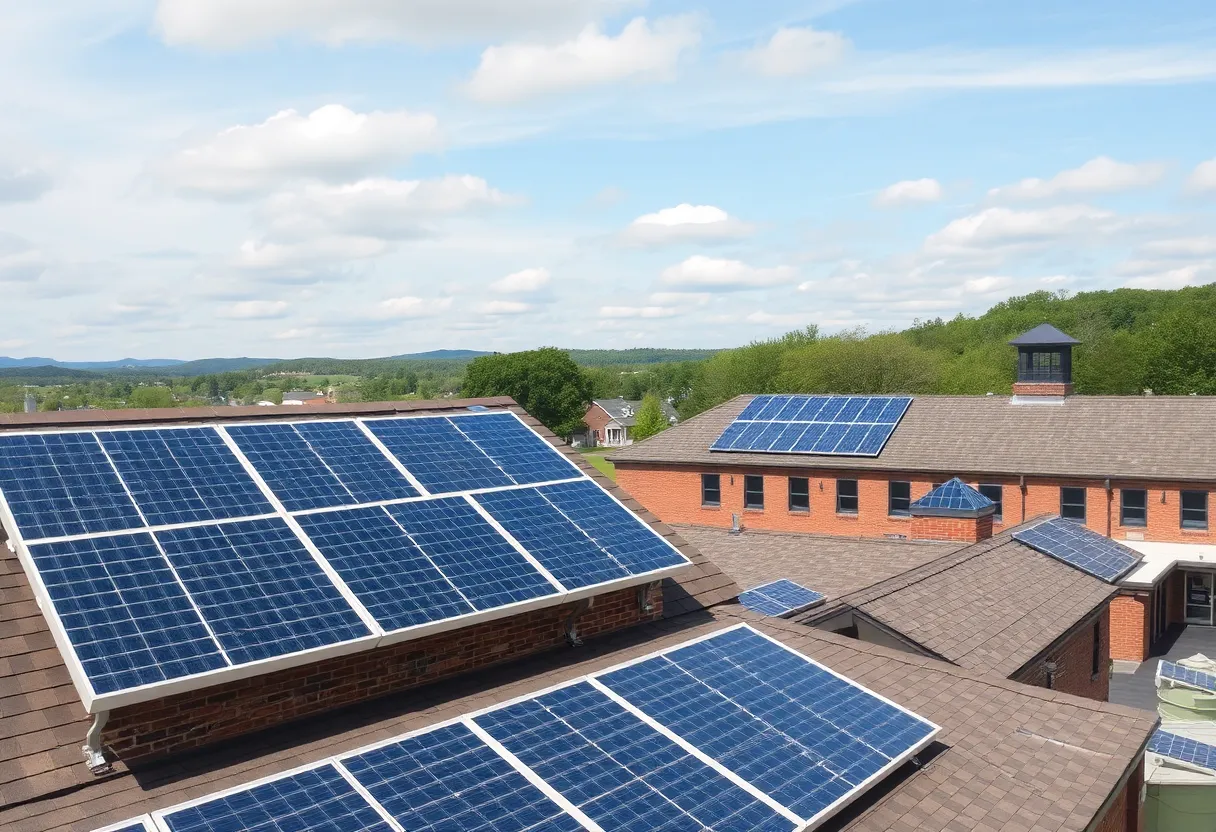News Summary
Pennsylvania is reinforcing its commitment to renewable energy with new solar initiatives led by PECO and supported by schools. A competitive RFP aims to boost solar generation capacity, while Senate Bill 349 establishes uniform decommissioning protocols for solar facilities. The School District of Philadelphia benefits from grant funding for solar projects, promoting sustainability and educational engagement in clean energy. This comprehensive strategy aims to enhance energy efficiency across the state, ensuring long-term environmental sustainability.
Pennsylvania is advancing its commitment to renewable energy as PECO, the state’s electrical utility, and various schools launch significant solar initiatives. These efforts aim to expand solar generation capacity and promote environmental sustainability while supporting educational institutions across the region.
On May 22, 2025, PECO announced a new competitive request for proposals (RFP) aimed at long-term renewable energy, capacity, and renewable energy credits from new solar projects. This initiative was approved by the Pennsylvania Public Utility Commission to bolster solar generation within the state. PECO plans to secure fixed-price power purchase agreements for up to 25 megawatts direct current (MWDC) of solar generation over a decade. To qualify, projects must obtain permission to operate by May 31, 2029, and each solar project must have a minimum size of 5 MW. Additionally, proposals will be accepted from larger projects exceeding 25 MW, ensuring a comprehensive approach to increasing solar energy production.
All projects must connect to the PJM Interconnection grid and be able to sell energy and capacity into the PJM markets. Moreover, PECO and its parent company, Exelon Utilities, have set ambitious sustainability goals that include a 50% reduction in operations-driven emissions by 2030 and achieving net-zero emissions by 2050. These targets underscore a strong commitment to transitioning towards cleaner energy resources.
In a related effort, the Pennsylvania Senate passed Senate Bill 349 on May 6, establishing a detailed protocol for the decommissioning of solar energy facilities. The legislation mandates that solar facility operators include decommissioning provisions in lease agreements, with the requirement to complete decommissioning within 18 months after ceasing electricity generation. This bill aims to create uniform decommissioning standards across the state while addressing a significant gap in the current regulations.
Under Senate Bill 349, solar operators must submit decommissioning plans along with proof of financial assurance to the county recorder of deeds, with costs assessed by third-party engineers. Furthermore, operators are required to update their financial assurance every five years to reflect current decommissioning costs, enhancing accountability in the industry. The bill will also override local regulations on decommissioning, promoting consistent standards throughout Pennsylvania.
In addition to utility efforts, the School District of Philadelphia has made notable strides in solar energy adoption. The district received $1.2 million in grant funding through the inaugural Solar for PA Schools Grant Program, which aims to empower schools with solar energy installations. Four schools—Andrew Hamilton School, Murrell Dobbins Career & Technical Education High School, Northeast Community Propel Academy, and W. B. Saul High School—are set to benefit from this funding, which covers 50% of associated construction costs, with additional incentives available to reduce expenses further.
The initiative seeks to lower operational costs while aligning with the District’s Green Futures sustainability goals. In its first year, the Solar for PA Schools Grant Program attracted significant interest, receiving 88 applications before the funds were exhausted. In total, 74 schools statewide have been awarded $22.6 million for solar projects, benefiting institutions across Pennsylvania and aiming to reduce electricity costs as well as foster job creation in the clean energy sector.
Schools receiving funding include Steelton-Highspire, Williams Valley, Scotland Elementary, Fayetteville Elementary, Crestview Elementary, and Newport High School. Pennsylvania’s Department of Community and Economic Development Secretary emphasized the importance of reducing energy costs for schools, noting that investments in solar energy can enhance financial stability and educational quality.
Furthermore, the program introduces opportunities for schools to establish themselves as “living laboratories,” providing students with hands-on experience in clean energy technologies through STEM education and training. This dual focus on renewable energy infrastructure and educational enhancement reflects Pennsylvania’s strategic approach to sustainability and innovation in the green energy sector.
Deeper Dive: News & Info About This Topic
- Centre Daily: Opinion on Renewable Energy
- JD Supra: Pennsylvania Solar Energy Facility
- Patch: Philly Schools Get Solar Energy Funding
- Solar Power World: 124 Solar-Powered K-12 Schools
- ABC27: Schools Receive Funding for Solar Panels
- Wikipedia: Solar Energy in Pennsylvania
- Google Search: Pennsylvania Solar Initiatives
- Google Scholar: Solar Energy in Pennsylvania
- Encyclopedia Britannica: Solar Energy
- Google News: Pennsylvania Solar Schools

Author: STAFF HERE PHILADELPHIA WRITER
The PHILADELPHIA STAFF WRITER represents the experienced team at HEREPhiladelphia.com, your go-to source for actionable local news and information in Philadelphia, Philadelphia County, and beyond. Specializing in "news you can use," we cover essential topics like product reviews for personal and business needs, local business directories, politics, real estate trends, neighborhood insights, and state news affecting the area—with deep expertise drawn from years of dedicated reporting and strong community input, including local press releases and business updates. We deliver top reporting on high-value events such as Mummers Parade, Philadelphia Flower Show, and Thanksgiving Day Parade. Our coverage extends to key organizations like the Greater Philadelphia Chamber of Commerce and United Way of Greater Philadelphia, plus leading businesses in telecommunications, food services, and healthcare that power the local economy such as Comcast, Aramark, and Children's Hospital of Philadelphia. As part of the broader HERE network, we provide comprehensive, credible insights into Pennsylvania's dynamic landscape.





